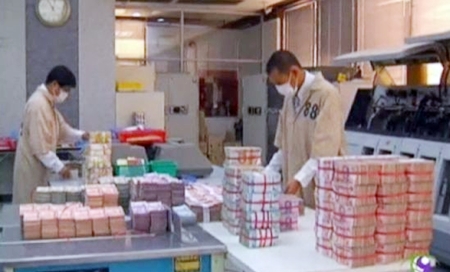Thailand’s leading industrialists last week renewed pressure on the government, calling for measures to rein in the baht’s appreciation, cut the policy interest rate and stem foreign capital inflows.
Payungsak Chatsuthipol, Federation of Thai Industries (FTI) chairman, said after submitting a letter to the prime minister that the rocketing baht has compelled some industries to import parts to reduce production costs – an act which may inflict damage to the domestic supply chain.

The exchange rate at Bt29 against the dollar may reduce the targeted export growth at 8-9 percent to 4-4.5 percent and the impact will be visible in Q2-Q3 as exporters could not set their product prices given the volatile baht, he said.
He urged the prime minister to cement cooperation between the Finance Ministry and the Bank of Thailand (BoT) and called on the Monetary Policy Committee (MPC), which normally meets every 6-8 weeks, to convene in a special discussion in light of the critical economic situation.
Stressing the FTI’s request for an interest rate reduction, Payungsak said, “If the MPC finds the FTI’s earlier call to lower the interest rate by 1 percent too harsh, it may choose to reduce only a little in combination with the Finance Ministry’s tax measures,” he suggested. The current policy interest rate is 2.75 percent.
The baht’s strength may bounce back now that the Central European Bank announced reducing the interest rate by 0.25 percent – a move which will possibly stimulate capital inflows into Asia, he said.
The baht has appreciated 6.28 percent since early this year, a reversal from the Japanese yen which depreciated 4.5 percent and Korean won which has slightly weakened by 7 percent, the FTI chairman said, adding that the private sector wants the baht’s movements to be stable and in line with other regional currencies.
The FTI will give the government a few weeks to tackle the baht and interest rate policies after which industrialists will decide on the next move if state agencies concerned fail to take concrete action.
In the letter to the premier, the FTI urged the government to adopt a crisis management approach to the exchange rate, switch from an inflation-targeting policy to include the exchange rate, speed up interest rate reduction, impose stricter measures on capital inflows and outflows, and adjust the BoT’s policy on issuing bonds.




